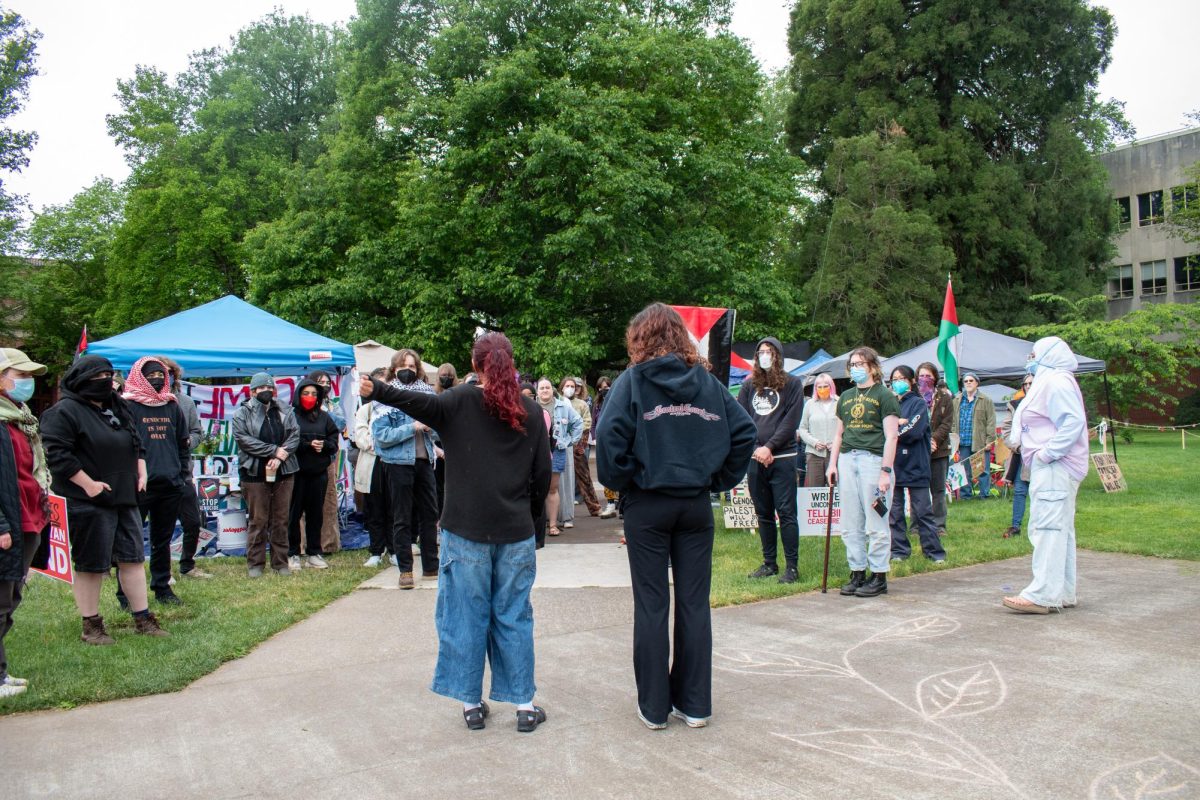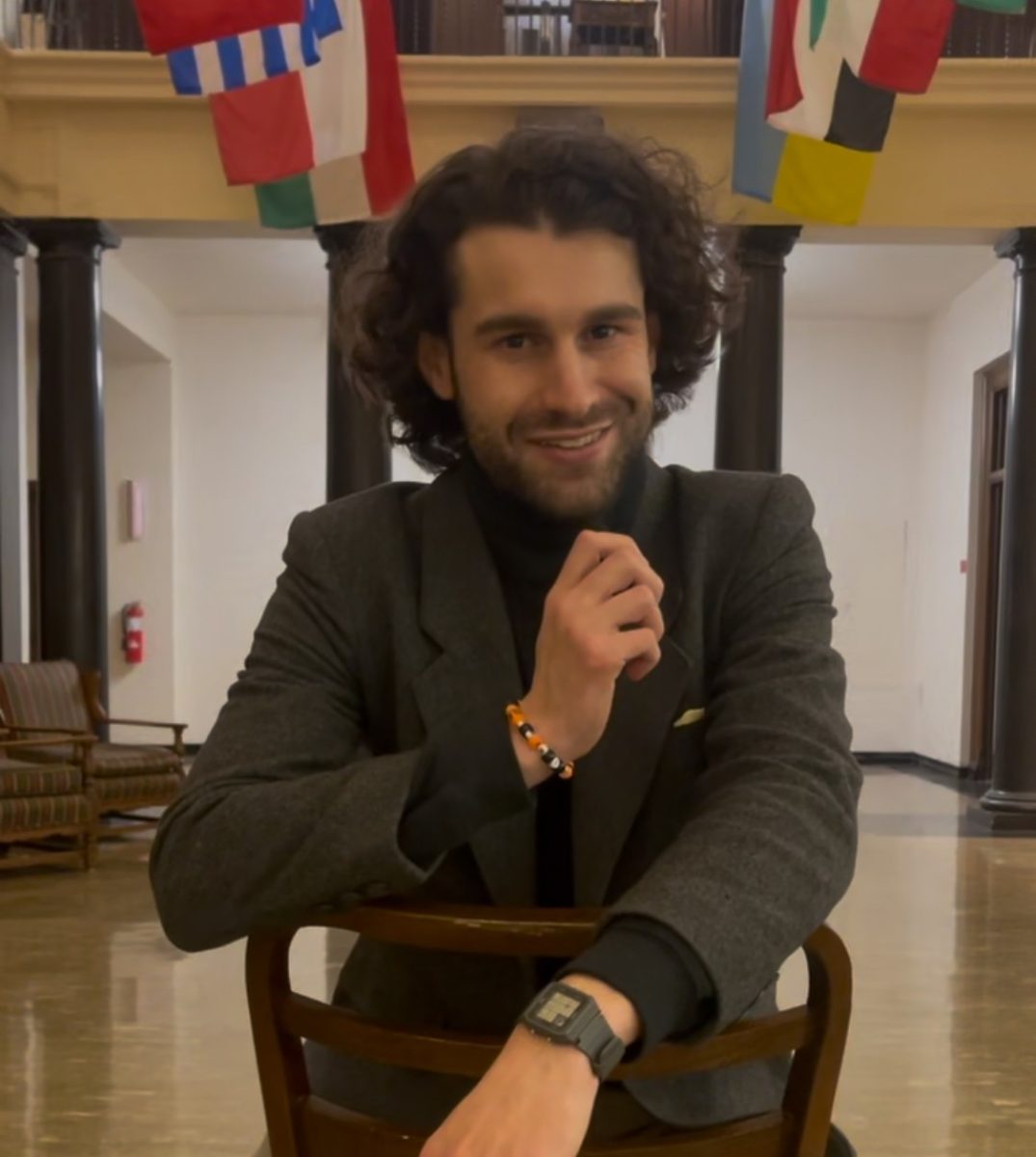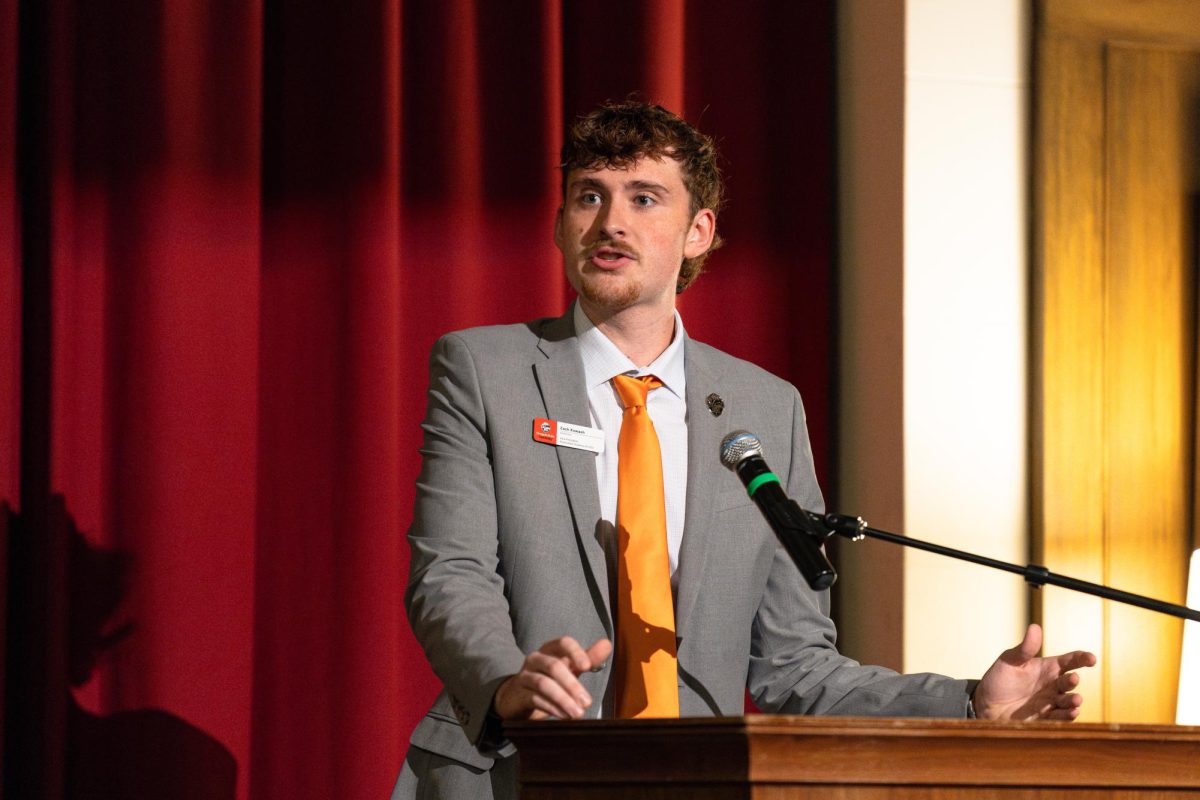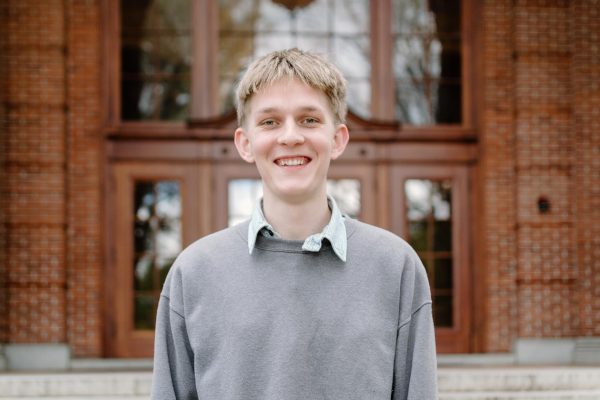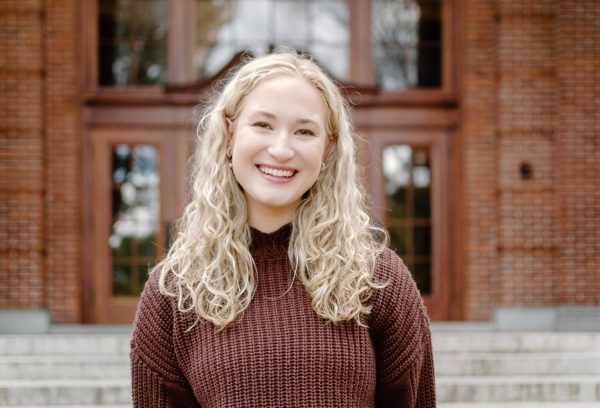After Oregon State University issued a “final response” to the encampment, Students United for Palestinian Equal Rights and other demonstrators at the encampment say it’s not enough.
The OSU encampment in support of Palestine, organized by SUPER, has grown to over one hundred participants since last Wednesday, residing on one quarter of the Memorial Union Quad.
After OSU’s response on Tuesday, the university said they will continue with their agreed demands when the encampment is disbanded.
SUPER addressed OSU’s demands on Instagram, saying that OSU’s response was “incredibly insulting” in that it allowed less than one hour for protestors to discuss further demands with the university.
On Instagram, SUPER added that organizers negotiated with the university to extend the deadline to disband from 1 p.m. to 3 p.m. on Tuesday.
SUPER and other participants in the encampment requested that OSU divest from any relations with Israel in a series of demands. These demands were handed out to protesters on Tuesday afternoon and shared on SUPER’s Instagram account.
OSU’s response addressed a number of SUPER’s demands with their own plans, such as:
- Transparency on OSU’s and the OSU Foundation’s behalf regarding direct investments by way of a public website
- Establishing a “Task Force on Ethical Academic Partnership charged with evaluating the alignment with institutional research policies with institutional values and priorities”
- Protecting “free expression and academic freedom rights of all OSU community members” the enforcement of existing policies prohibiting discriminatory anti-Palestinian and anti-Semitic behavior
- A commitment to offering curricula and courses on the Middle East
- Publishing of a “library guide” providing information on Palestine, Israel and the region
However, SUPER lists additional demands of OSU, including:
- Calling for the university to “release a public statement calling for an immediate and permanent ceasefire in Gaza
- Amendments to the Oregon State University Public University Fund Investment Policy, including withholding investments from “issuers identified by the Investigate Project of the American Friends Service Committee and/or the United Nations Human Rights Office Database Pursuant to Human Rights Council Resolution 31/36”
- OSU Foundation adopting an analogous investment policy
- OSU adopting a policy for procurement excluding business contracts with “companies identified by the UN Human Rights Database Pursuant to Human Rights Council Resolution 31/36”
- Requests that OSU not meet “non-violent acts of civil disobedience” with “law enforcement response or punishment via student code of conduct”
- Requests that OSU “not charge any student supporting or participating in the OSU Palestine Solidarity encampment with any violation of the student code of conduct” and issue “no criminal charges”
- The rescindment, removal and amelioration of disciplinary actions or processes for university employees participating in the encampment
- Hiring Palestinian, Muslim and Arab faculty members to lead “the development of an Arab studies component in the Ethnic Studies department curriculum,” as well as an end goal of “coursework within the Bacc Core Non-Western requirements that centers Palestinian history and resistance”
- OSU providing “full financial support to ten scholars from Palestine to complete their studies at Oregon State and receive their degree at OSU, either undergraduate or graduate”
- OSU to raise funds to direct to the “alleviation of civilian suffering” in Palestine refugees, Jordan, Lebanon, Syria, West Bank and the Gaza Strip.
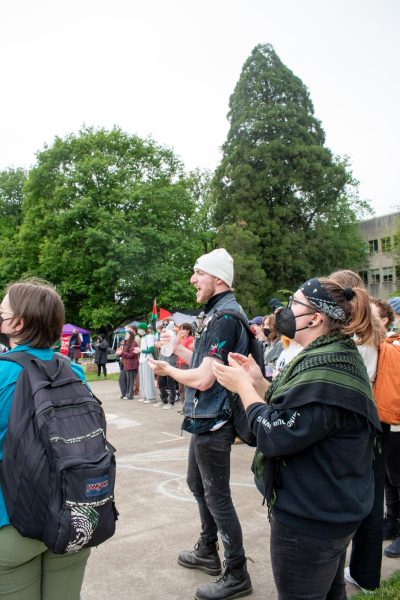
OSU posted their final response statement outlining nine different plans in regards to SUPER’s demands. OSU said they plan to start these when the encampment disbands.
The first plan stated that the OSU Foundation, a non-profit that has $1.1 billion in funds raised for OSU, will publicly post their direct investments, updating them annually. They stated that the OSU Foundation does not hold any “direct investments,” but did not state with whom they do not hold investments.
The response stated they plan to assemble a “Task Force on Responsible Investing” to aim to align with “institutional values,” but did not elaborate on what values they hold.
The task force will launch fall term of this year, according to the response statement. Community members, the statement said, will be able to make recommendations to the OSU Board of Trustees for where OSU will invest funds.
The statement also said they plan to launch a “Task Force on Responsible Procurement,” in fall of 2024 for community members to make suggestions to OSU President Jayathi Murthy. These suggestions are for making recommendations for procurement, which is how money is involved in purchasing services and goods for OSU.
Other plans include protecting freedom of expression and academics for both students and professors. They also plan to continue prohibiting anti-Palestinian and anti-Semitic behavior.
The statement said OSU plans to work with faculty and students for assembling academic “programming,” such as panels and lectures on the violence.
Other plans in the statement include creating a library guide that outlines displacement and violence in “the history and present of Palestine, Israel and the region,” and raising funds for the International Committee of the Red Cross, which has brought humanitarian aid to the West Bank, Gaza and Israel.
OSU said they have not penalized any OSU student or university employee for their participation in the encampment, and once the encampment is disbanded, they plan to maintain their position.
Shortly after OSU issued their response, during a speech in front of the encampment on Tuesday, two demonstrators said they are “over what the (OSU) administration has given (them).”
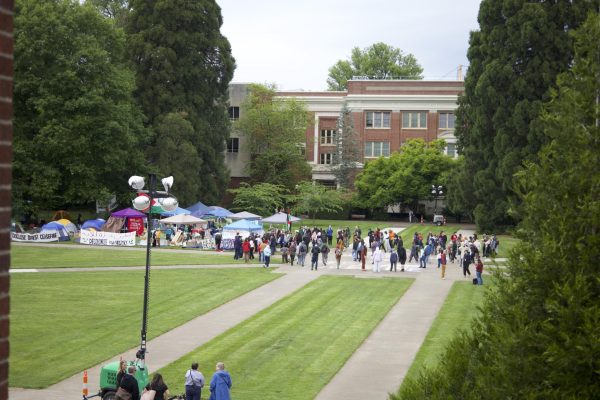
One demonstrator, Sophie, who started the speech in front of the encampment, said the encampment was not putting pressure on the OSU administration in the way they wanted.
“I am ready to start looking for other action,” Sophie said. “I want to find other ways to put pressure on the OSU Foundation and put pressure on the (OSU) president. These people that they’re sending and they’re exploiting to come do these negotiations with us––I’m kind of over that. I want us to find another way besides this encampment.”
Sophie also said they think the encampment and what they’ve done is “awesome,” but they should consider other options because they don’t believe they’re going to make more progress.
“There are other avenues that we are not taking control of by doing the encampment. There are avenues that we are shedding because of the encampment,” said a speaker who did not disclose their name.
Sophie said they want to ensure demonstrators get what they need without putting their lives in jeopardy. As of now, Sophie said they think the encampment has caused people discomfort and grabbed their attention.
“In taking next steps, I think there are other avenues that don’t exhaust us to a degree that we are exhausted by doing this, that don’t rely on certain people, a couple people, to carry out for much longer.”
In the next steps for the encampment, Sophie said they think there are more opportunities for demonstrators to disrupt OSU in different ways that will conserve their energy and still get attention of those they are trying to reach, like Murthy.


















































































![Newspaper clipping from February 25, 1970 in the Daily Barometer showing an article written by Bob Allen, past Barometer Editor. This article was written to spotlight both the student body’s lack of participation with student government at the time in conjunction with their class representatives response. [It’s important to note ASOSU was not structured identically to today’s standards, likely having a president on behalf of each class work together as one entity as opposed to one president representing all classes.]](https://dailybaro.orangemedianetwork.com/wp-content/uploads/2025/03/Screenshot-2025-03-12-1.00.42-PM-e1741811160853.png)
























